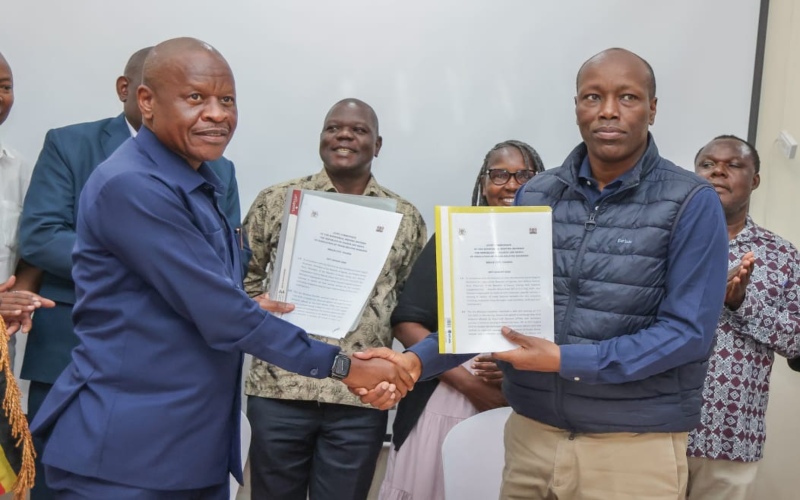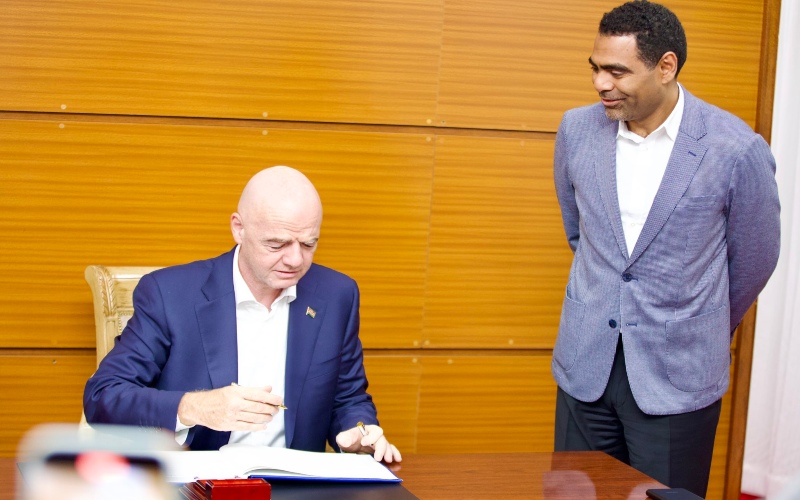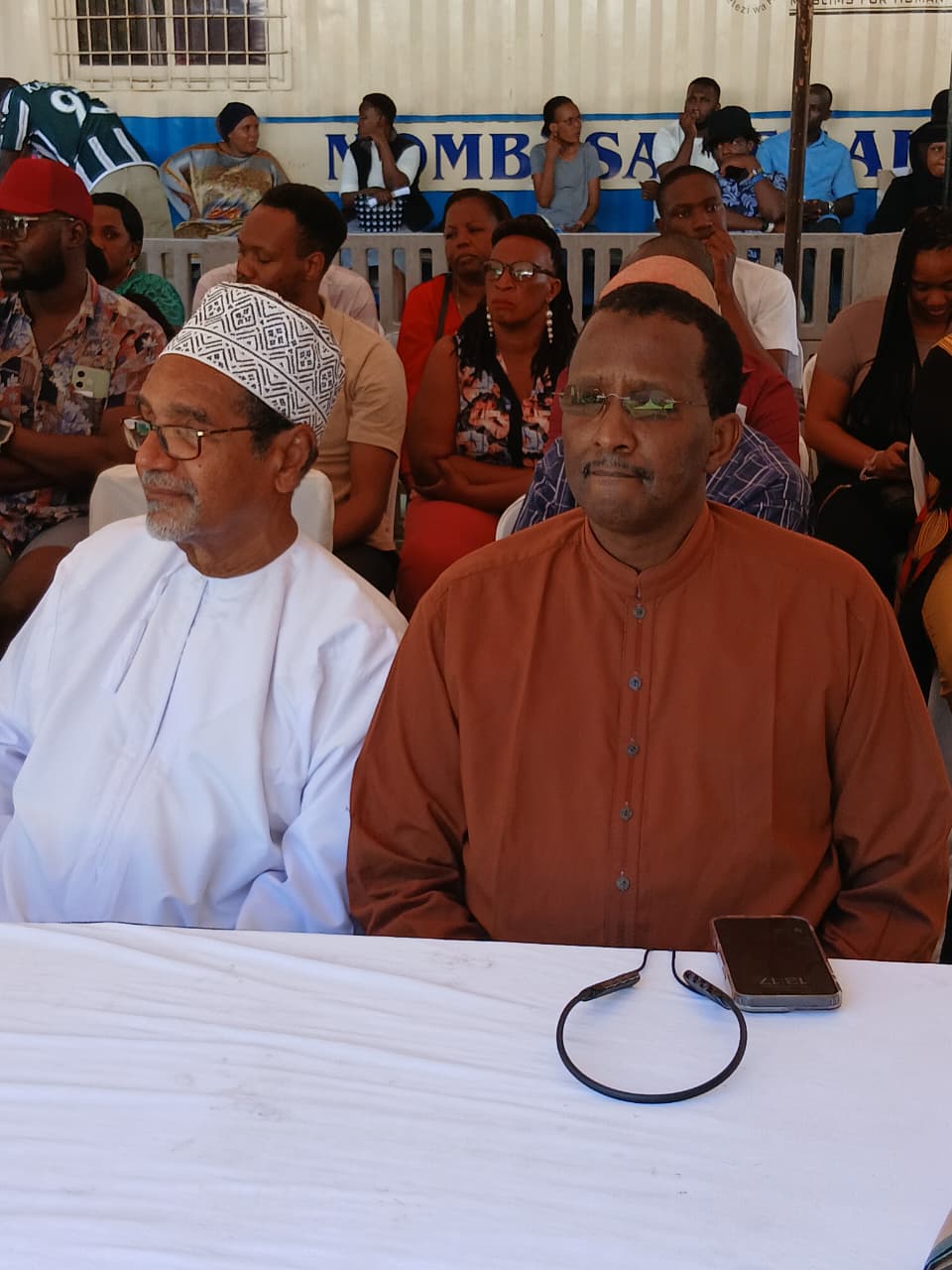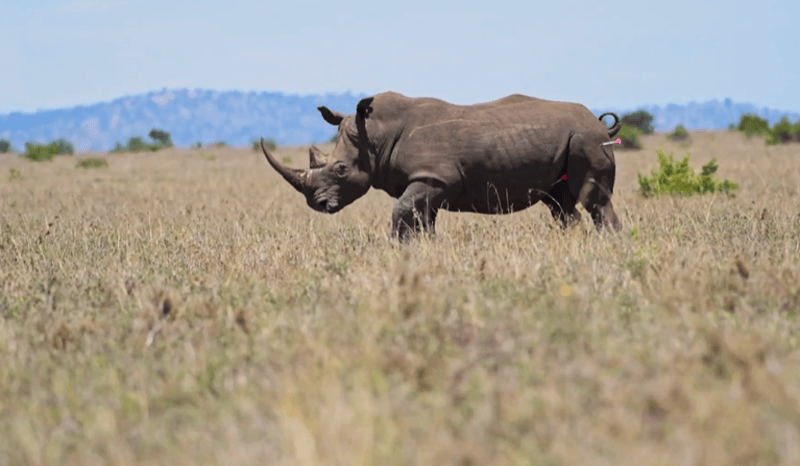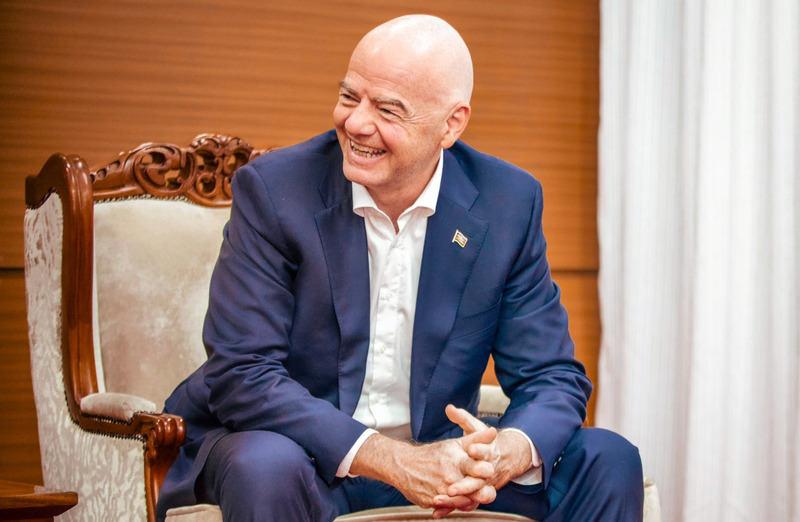US-Kenya ties: Nairobi walks diplomatic tightrope amid deepening ties with China, Iran
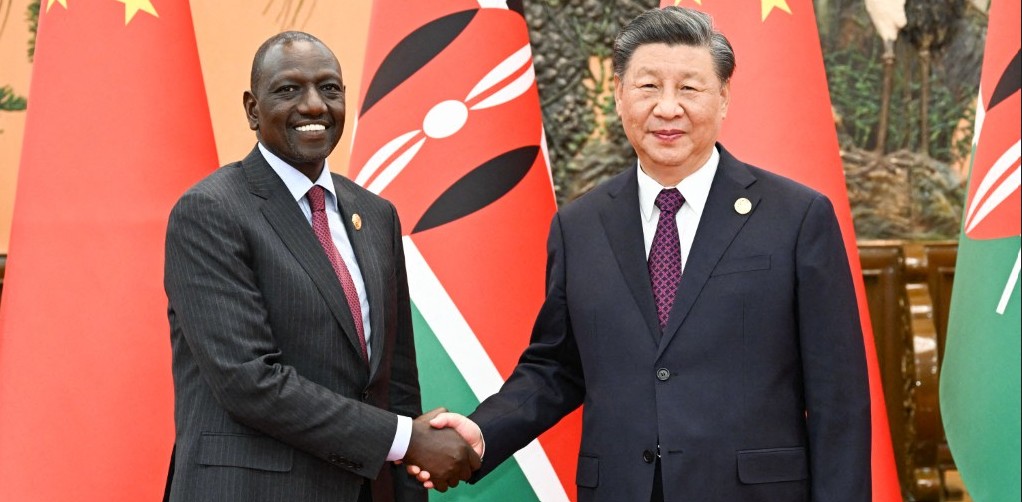
But Kenya's apparent pivot to China has caused considerable unease in Washington. President Ruto's April 2025 state visit to Beijing came at the height of US-China trade tensions.
Until recently, Kenya appeared to be steadily climbing the global food chain, even as the world reeled from growing economic nationalism, intensified by Donald Trump's return to the White House and his "Liberation Day" tariffs.
The new duties, aimed at shielding American industry, have not spared Kenya, which was slapped with a 10 per cent tariff on its exports to the US this April.
More To Read
- 'Yiwu Selection' store debuts in Nairobi, bringing Chinese brands closer to Kenyan consumers
- Kenya defends Sh271 million image-laundering gamble in Washington
- President Ruto vows to crack down on SHA fraud as 1,000 health facilities shut
- Kenya gambles on Washington powerbroker to revive Ruto’s image and AGOA
- President Ruto bestows Prince Rahim Aga Khan V 'Chief of the Order of the Golden Heart'
- Ruto appoints Faith Odhiambo to co-chair panel of experts on compensation of protest victims
It was a bitter pill for Nairobi, particularly as the Ruto administration had, until recently, been seen as Washington's darling in Africa.
President William Ruto, a former deputy president who won power in 2022 on an anti-China platform, was welcomed with open arms during his May 2024 state visit, the first by an African leader in 15 years.
Kenya became the first sub-Saharan country to be designated a Major Non-NATO Ally (MNNA), a geopolitical badge of honour typically reserved for countries trusted with deep security and defence cooperation.
But Kenya's apparent pivot to China has caused considerable unease in Washington. President Ruto's April 2025 state visit to Beijing came at the height of US-China trade tensions.
Worse still, his declaration in Beijing that Kenya and China were "co-architects of a new world order" triggered outrage among US legislators.
Senator Jim Risch, a hardliner who chairs the Senate Foreign Relations Committee, questioned whether Nairobi still deserved MNNA status.
His concerns were echoed by think tanks and policymakers who now want a thorough review of the US security assistance and intelligence sharing with Kenya, particularly in light of allegations of extrajudicial killings and enforced disappearances during Kenya's historic June 2024 protests.
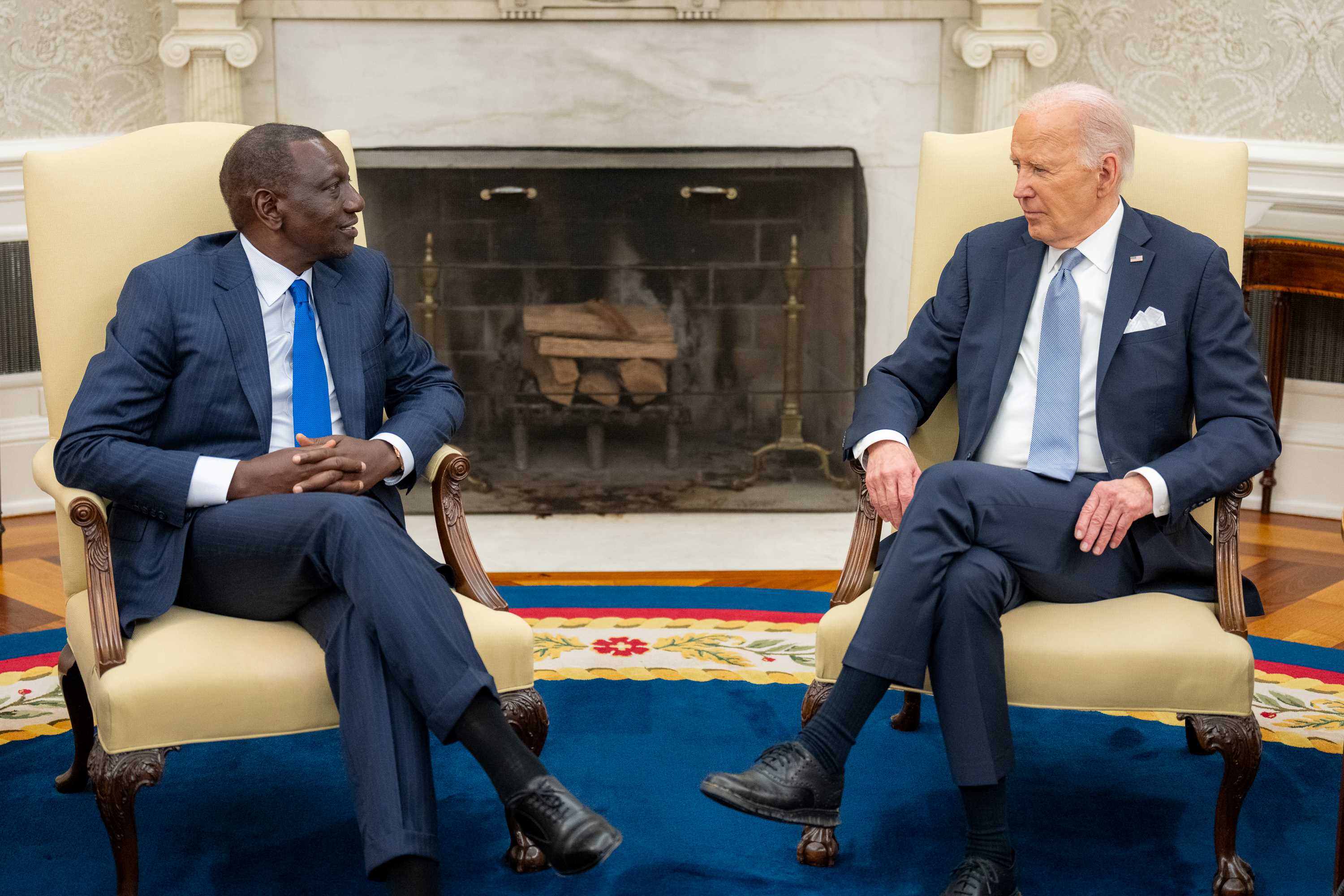 US President Joe Biden holds talks with his Kenyan counterpart William Ruto at the White House on May 23, 2024. (Photo: PCS)
US President Joe Biden holds talks with his Kenyan counterpart William Ruto at the White House on May 23, 2024. (Photo: PCS)
Ruto, seemingly unfazed, insists the Beijing visit was about trade, not allegiance.
"They have agreed to remove all tariffs on our tea, coffee, avocado, and other agricultural exports," he announced during a Presidential Private Sector Roundtable in Nairobi. "That's a major breakthrough for us."
"It's partly why I have a bit of a problem with some of our friends, but it is what I must do for Kenya," Ruto added.
Yet, in Washington, suspicion lingers. Kenya's warming ties with China, and increasingly with Iran, have not gone unnoticed.
The Ruto administration recently dispatched Lt. Gen. (Rtd) Jonah Mwangi to Tehran as ambassador, and he is due to present his credentials on November 18.
American policymakers view Iran with deep hostility and are unlikely to look kindly on Kenyan overtures to the Islamic Republic, even if, as Kenyan business leaders argue, Iran represents a lucrative tea market of over 100 million people.
Dr. Martin Kimani, Kenya's former UN envoy and now head of the Africa Centre at Aliko Dangote Hall in New York, defended Ruto's position.
"Real allies, or good friends, should not be judged on the basis of a single line in a speech," he wrote.
"Unless the point is that being an MNNA is an allegiance to Washington, reversed by a single visit to Beijing."
Kimani, who earned international praise for his 2022 speech condemning Russia's invasion of Ukraine, stressed that "The Kenya I represented as a diplomat had pledged no allegiance to any single nation. Allegiance was to African unity and integration."
Scholars like Prof. Yanyan Yani of Indonesia's Universitas Padjadjaran argue that true non-alignment is nearly impossible today. "At best, it's a pseudo non-alignment," he said in one of his foreign policy classes this year.
Kenya's strategic ambiguity is not new. Since the 1998 US embassy bombing in Nairobi, the country has been a close counterterrorism ally of Washington.
Kimani, who once led Kenya's National Counterterrorism Centre (NCTC), notes that this cooperation has come at a cost.
"Al Shabaab has used this closeness with the US to justify attacks on Kenyans," he warned, adding that Kenya's recent deployment to Haiti is partly a favour to Washington.
Kenya, while vocal about sovereignty, remains heavily tethered to American military and intelligence cooperation.
The tragic crash of a donated US military helicopter in 2024 that killed a top Kenyan general was a stark reminder of that dependency.
But Ruto's government now finds itself under intense scrutiny.
Congress is demanding answers about whether American-supplied equipment or intelligence has been misused domestically. At the same time, Trump's new tariffs are beginning to bite.
Kenya, which has long benefited from duty-free access to the US under the African Growth and Opportunity Act (AGOA), is scrambling to negotiate a bilateral free-trade agreement as AGOA expires this September.
Kenya-China trade deals
Meanwhile, China has seized the moment. On June 12, Beijing announced that it would grant duty-free access to products from all African countries, except Eswatini, which recognises Taiwan.
Ruto's team, led by Trade Minister Lee Kinyanjui, called it a victory.
But critics note that most of Africa's exports to China are still raw materials, and the trade balance remains lopsided.
In 2024, Kenya exported just $200 million to China out of Africa's $8.5 billion total, compared to China-Africa trade worth $296 billion overall.
Still, for exporters like Hasit Shah, the tariff cuts could be transformative.
"It will really help us against Peruvian fruit," he told The Economist, referring to the 7 per cent duty Kenyan avocados currently face in China.
Kenya's trade agenda is ambitious.
Carol Kariuki, CEO of the Kenya Private Sector Alliance (KEPSA), urged Ruto to pursue reciprocal deals with India, Iran, Turkey, and Canada. But that, too, risks drawing American ire.
India has recently been accused of facilitating trade with Russia and has been slapped with 50 per cent tariffs by the US.
Behind closed doors, Washington may be dusting off the same playbook it used on South Africa, a mix of economic pressure and political posturing to reel in wayward allies.
Ruto may believe, like Kissinger, that nations have no permanent friends, only permanent interests.
But Washington still wants clarity: are you with us or with them?
For Kenya, the high-wire act continues. It must walk the tightrope between competing superpowers without losing balance, or its own sovereignty as Kimani argues.
Top Stories Today






